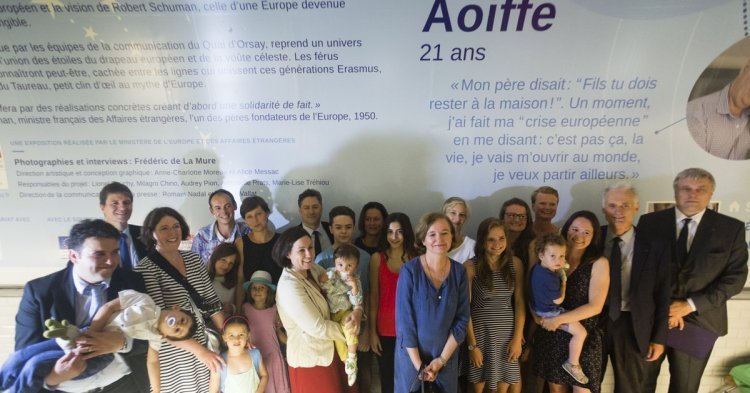Not unlike Rome, a federalized Europe will not be built in a day – and it won’t be the politicians guarding their spots in Brussels, Strasbourg, Paris or Berlin that will make it happen.
“I call it a sexual revolution: a young Catalan man meets a Flemish girl – they fall in love, they get married and they become European, as do their children...” Umberto Eco remarked famously. His words ring true, especially these days, when democratic deficit and nationalism wreak havoc, questioning the EU’s legitimacy, and when the European spirit seems to be fading.
While there is no one singular solution to the problem, there is certainly one thing we can do, something that does not require the intervention of high politics, subsidies, directives of regulations. Have sex.
“United in diversity”?
Not just any sex - international, European sex! It may sound controversial, fair enough. But international relationships are the epitome of a bottom-up federalizing initiative. What will happen if a Catalan man meets a Flemish woman – and they fall in love? At the very least they will have a strong incentive of visiting each other’s countries, getting to know each other’s friends and families.
This exposure to a foreign culture, motivated by something that is entirely pleasurable – love and sex – results in a voluntary immersion in it, most probably provoking a realization that there is a strong merit to the motto “united in diversity”.
Do you think John would vote for Brexit if he knew that Greta was waiting for him to visit or to move to Germany? Would he risk his freedoms and rights as a European citizen, being aware how much freedom and protection he derives from them?
Love gives another, more practical dimension to the European politics. It fosters mobility of students and professionals – after all, what can start as a one-night-stand or a Tinder date in a foreign city, can result in a genuine connection, followed by a long-distance relationship, multiple visits and, ultimately, a commitment to move out of one’s country of origin. It can encourage learning a new language or perfecting English, studying customs and even laws of different countries, facilitating an exchange of good practices. Maybe while visiting your French lover you will learn that contraception can be subsidized and bring that knowledge back home to add to a list of postulates to your government? Wouldn’t you want to contribute European cohesion?
Creating true Europeans
And what if Eco’s Catalan man and our Flemish woman decide to bring a new life into the world? The child would, by all means, be the product of Europe, not constrained to just one region or nationality. It could grow up with Spanish, Catalan, Dutch and French, knowing best of both worlds. It would empirically, not just theoretically, understanding that it is possible to feel Flemish, Catalan, Belgian, Spanish AND European at the same time.
Let’s take it a step farther. This Spanish-Belgian meets a German-Croatian. Their child, a fruit of four nationalities, cultures and traditions, sure-footedly, armed in multiple languages and a background of multiple cultures, ventures into Europe to meet his or her future mate. That child, and his or her children, and their children, will be the true products of free movement, of the Erasmus programme, of all the best the European Union has to offer.
It is said that the Erasmus programme helped creating over a 1 million babies! Just stop and imagine an entire medium-sized city populated by people with double nationalities. There are twice as many Erasmus children as citizens of Luxembourg, their number constitutes half of the population of Slovenia.
If that many international romances ended up in lifelong commitments, try imagining how many love stories took place thanks to European mobility programmes. Umberto Eco argues that Erasmus should be obligatory for not only students but also plumbers, cleaners or factory workers. While it is hard to agree with him on the compulsory factor, we need to recognize the influence open borders and the free flow of people on the creation of European identity and a true feeling of belonging.
The EU has already given us multiple tools for bottom-up (pun unintended) integration, especially in the Tinder-fuelled dating world. I feel it is our responsibility to expand the European spirit through the most peaceful way possible – let’s make love, not walls.



Follow the comments: |
|
